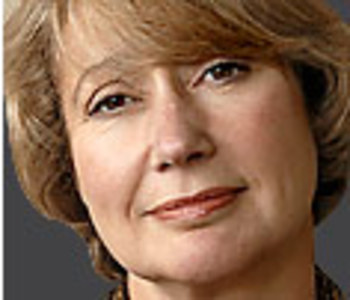My friends in other parts of the country are bewildered by all this ruckus in Ontario over faith-based schools. Their provinces fund a variety of faith-based schools without a fuss. So what's our problem?
Our problem is, the issue hit a giant collective nerve. It tapped into a widespread sense of unease about increasing social fragmentation. In the Toronto area, so many newcomers are streaming in so fast that we scarcely have a clue who our neighbours are. We're a city of increasingly segregated religious and ethnic ghettos. And so the school funding issue turned into a sort of referendum on what kind of province we want to live in. Guess what? We don't want to be a mosaic after all.
The firestorm over faith-based schools is closely connected to Quebec's debate over "reasonable accommodation." Both have tapped into a fear of the unknown. There, the inept Bouchard-Taylor commission has turned into an embarrassing forum for small-town cranks worried about being overrun by burka-clad hordes. But, in both cases, the underlying questions are the same: How much accommodation should we extend to newcomers, and how much should we ask of them?
Until recently, no one bothered to ask the second question. The deal was, we'd put out the welcome mat and pay lip service to their holidays in school. They would repay us with their labour, skills and children, who, despite our obeisance to multiculturalism, would grow up to be pretty much like us (or so we hoped). A peaceable, multiracial, multiethnic society would develop organically (or so we hoped). The cultural differences among us really didn't matter.
Except that some of them do. Just ask Europe.
Naturally, this is one subject no politician wants to touch. That's why Quebec Premier Jean Charest appointed a commission to look into it. But, among the public, it has reached a tipping point.
As it turns out, a pretty accurate barometer of mainstream opinion is Bruce Allen, the Vancouver radio commentator who was denounced as a racist for saying immigrants should either fit in or leave. Most Canadians feel the same way. When asked in a recent SES poll whether immigrants "should fully adapt" to the Canadian way of life, 53 per cent said yes. In Quebec, 77 per cent said immigrants should adapt to Quebec and Canadian society.
Are all these Canadians racist? I don't think so. I suspect they're a lot like the folks in Ontario who believe it's very, very important for newcomers to send their kids to public schools. It's also plain that most Canadians want public institutions to be more secular, not less: 59 per cent of respondents in the SES poll said they didn't think prayer spaces should be provided in public places to accommodate religious minorities.
What, then, do people mean when they say immigrants should "fully adapt" to the Canadian way of life? Do they mean that Muslim women ought to stow their face veils? Do they mean that people should be required to discard their turbans, kippas, hijabs, ceremonial swords and all the other outward signs of religious identity? Or do they mean that newcomers must embrace the same civilizational virtues we do - religion as a private matter, respect for democracy and free speech, and the rejection of all forms of discrimination based on race, religion, gender or sexual orientation? There's another question, too. In a multicultural world, what happens to Canada's identity as two founding peoples?
Whatever it is we mean, there's no way we can escape the debates about immigration and identity that have engulfed Europeans. Ours won't be so violent or so bitter. But they're bound to be emotional. And the emotions on display in Quebec and Ontario are a taste of things to come.
mwente@globeandmail.com




















Laissez un commentaire Votre adresse courriel ne sera pas publiée.
Veuillez vous connecter afin de laisser un commentaire.
Aucun commentaire trouvé